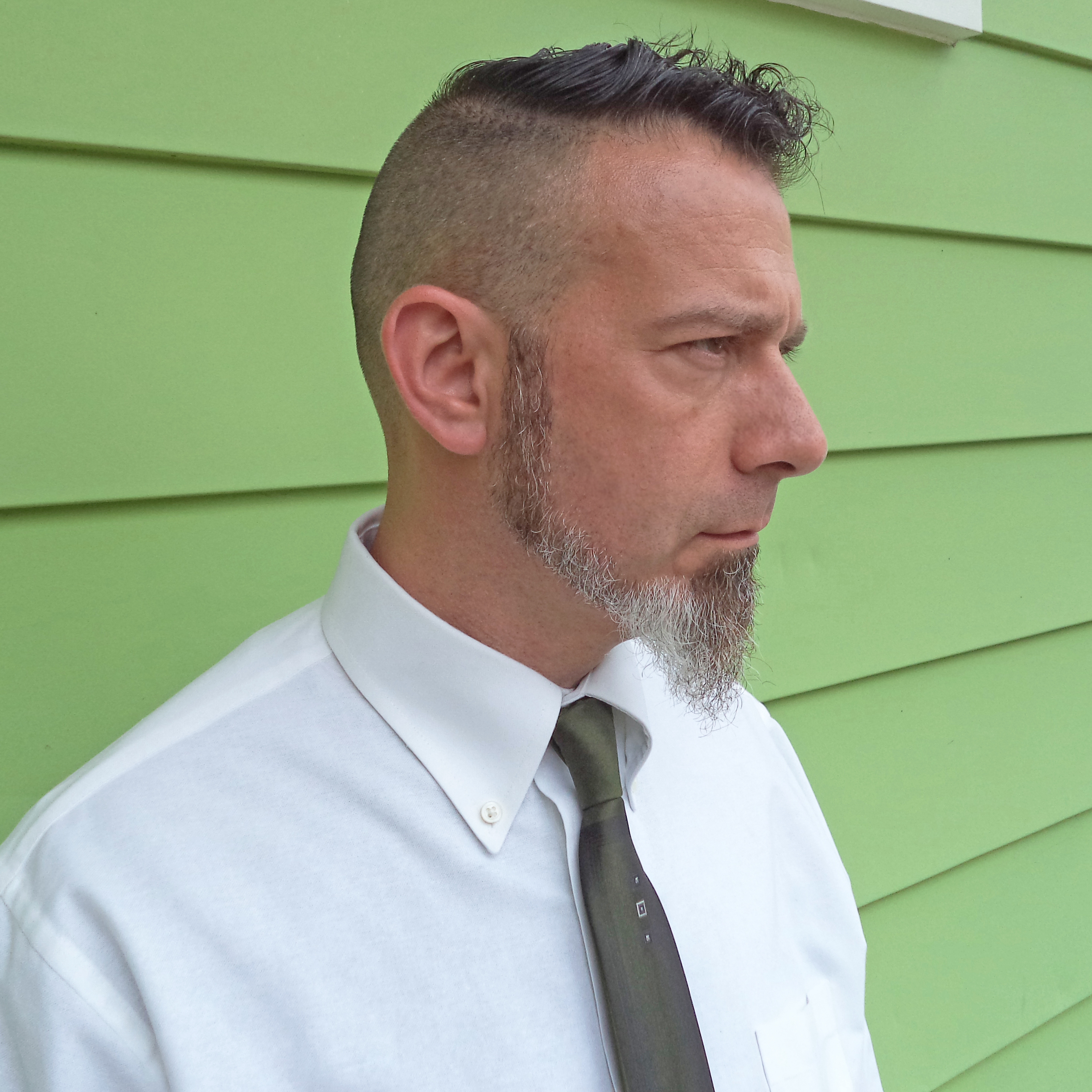 Eugene Mario DeRobertis is a Professor of Psychology at Brookdale College in New Jersey and a Lecturer at Rutgers University-Newark. He did his undergraduate degree in philosophy, with a minor in psychology at St. Peter’s University. While at St. Peter’s, he studied with the humanistic personality theorist and civil rights activist, Robert F. Massey, and the existential Thomist, Robert H. Cousineau. He then went on to receive his PhD in psychology from Duquesne University. His mentor at Duquesne was the existential-hermeneutic personality theorist, Edward L. Murray.
Eugene Mario DeRobertis is a Professor of Psychology at Brookdale College in New Jersey and a Lecturer at Rutgers University-Newark. He did his undergraduate degree in philosophy, with a minor in psychology at St. Peter’s University. While at St. Peter’s, he studied with the humanistic personality theorist and civil rights activist, Robert F. Massey, and the existential Thomist, Robert H. Cousineau. He then went on to receive his PhD in psychology from Duquesne University. His mentor at Duquesne was the existential-hermeneutic personality theorist, Edward L. Murray.
Dr. DeRobertis has been teaching at the college level since 1996. Prior to committing himself to teaching full-time, he worked as a developmentally oriented psychotherapist, an academic counselor, and an addictions counselor. He has published numerous peer-reviewed works in the areas of phenomenological psychology, existential-humanistic psychology, psychological theory, and developmental psychology with an emphasis on childhood. Dr. DeRobertis’s personal interests include contemporary applications of Thomistic thought and contemporary continental philosophy. He is also enthusiastic about mid 20th-century rhythm and blues music, “underground” music of the 1980s, horror in film, and American automobiles of the 1960s.
At academia.edu: https://brookdalecc.academia.edu/EugeneDeRobertis
At ResearchGate: https://www.researchgate.net/profile/Eugene_Derobertis
Selected Books
Profiles of personality: Integration, paradox, and the process of becoming. University Professor’s Press, 2021. ISBN: 978-1-939686-97-8.
https://universityprofessorspress.com/product/profiles_of_personality/
The phenomenology of learning and becoming: Enthusiasm, creativity, and self-development. Palgrave Macmillan, 2017. ISBN 978-1-349-95204-5. https://www.palgrave.com/gp/book/9781349952038
The whole child: Selected readings in existential-humanistic child psychology. CreateSpace, 2012. ISBN: 978-1477635759. https://www.amazon.com/Whole-Child-Existential-Humanistic-Psychology/dp/1477635750
Humanizing child developmental theory: A holistic approach. iUniverse, 2008. ISBN: 978-0595690985. https://www.iuniverse.com/BookStore/BookDetails/134204-HUMANIZING-CHILD-DEVELOPMENTAL-THEORY
Selected Peer-Reviewed Articles
Epistemological foundations of humanistic psychology’s approach to the empirical, Journal of Theoretical and Philosophical Psychology, Advance online publication, 2021: https://doi.org/10.1037/teo0000181
The humanistic revolution in psychology: Its inaugural vision. Journal of Humanistic Psychology, Advance online publication, 2020: https://doi.org/10.1177/0022167820956785
Piaget and Husserl: Comparisons, contrasts, and challenges for future research. The Humanistic Psychologist, Advance online publication, 2020: https://doi.org/10.1037/hum0000183
(With A. Bland) From personal threat to cross-cultural learning: An eidetic investigation. Journal of Phenomenological Psychology, 51(1), 1-15, 2020. https://doi.org/10.1163/15691624-12341368
(With A. Bland) Lifespan human development and “the humanistic perspective”: A contribution toward inclusion. The Humanistic Psychologist, 48(1), 3-27, 2020. https://doi.org/10.1037/hum0000141
(With A. Bland) Tapping the humanistic potential of self-determination theory: Awakening to paradox. The Humanistic Psychologist, 46(2), 105-128, 2018. https://doi.org/10.1037/hum0000087
On framing the future of humanistic psychology, The Humanistic Psychologist, 44(1), pp. 18-41, 2016. https://doi.org/10.1037/hum0000014
(With A. Bland) Maslow’s unacknowledged contributions to developmental psychology, Journal of Humanistic Psychology, 60(6), 2020. Advance online publication, November 8, 2017: https://doi.org/10.1177/0022167817739732
The phenomenology of happiness: Stephen Strasser’s eidetic explication, The Humanistic Psychologist 44(1), pp. 72-88, 2016. https://doi.org/10.1037/hum0000012
Philosophical-anthropological considerations for an existential-humanistic ecopsychology, The Humanistic Psychologist, 43(4), pp. 323-337, 2015. https://doi.org/10.1080/08873267.2014.961637
A neuroscientific renaissance of humanistic psychology, Journal of Humanistic Psychology, 55(3), 323-345, 2015. https://doi.org/10.1177/0022167814536617
Humanistic psychology: Alive in the twenty-first century? Journal of Humanistic Psychology, 53(4), 2013. https://doi.org/10.1177/0022167812473369
Becoming verbally aggressive toward one’s child: A study of the mother’s perspective. Journal of Aggression, Maltreatment and Trauma 21(4), 422-439, 2012. https://doi.org/10.1080/10926771.2012.669820
Third force psychology and child psychology: A convergence of horizons. The Humanistic Psychologist, 40, 58-78, 2012. https://doi.org/10.1080/08873267.2012.643689
Prolegomena to a Thomistic child psychology, Journal of Theoretical and Philosophical Psychology 31(3), 151-164, 2011. https://doi.org/10.1037/a0023123
St. Thomas Aquinas’s philosophical-anthropology as a viable underpinning for a holistic psychology: A dialogue with existential-phenomenology. Janus Head, 12(1), 2011. http://janushead.org/wp-content/uploads/2020/06/JH12-2FinalDraft.pdf
(With J. Iuculano) Metaphysics and psychology: A problem of the personal. Journal of Theoretical and Philosophical Psychology, 25(2), 238-256, 2005. https://doi.org/10.1037/h0091261